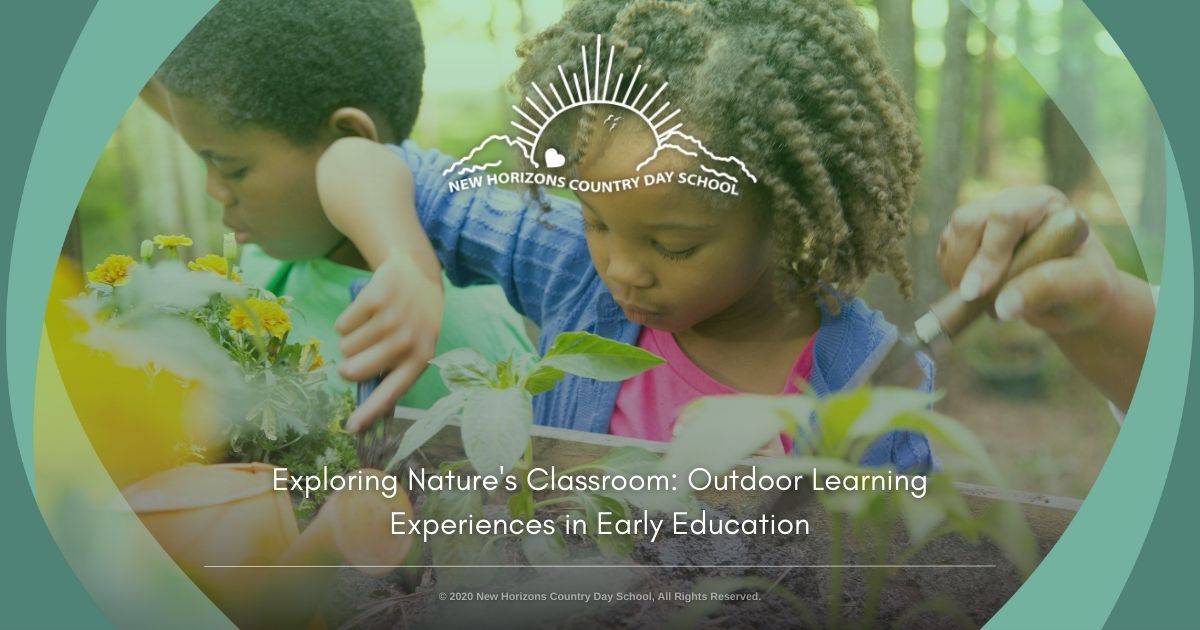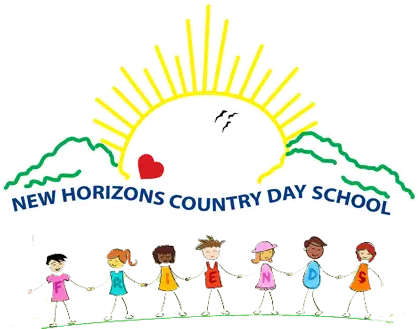
Research has shown the benefits of spending time outdoors and getting fresh air on mental health and overall wellness. These benefits are evident in classroom settings at all age levels, including early education.
At the height of the pandemic, many early education programs increased their time outdoors to limit exposure. The noticeable benefits of outdoor learning inspired many preschools to make long term changes to their programs.
At New Horizons, we know that young learners need plenty of time outdoors. We are proud to offer pre-K and other early education programs that provide outdoor education, play-based learning, and other evidence-based methods.
This article will explore the benefits of outdoor learning experiences in early education programs. Reach out to the team at New Horizons Country Day School now to learn about our incredible early learning programs in Palm Harbor or to schedule a tour of our learning center.
What is Outdoor Learning?
As you might guess, outdoor learning describes education that occurs outdoors. In the 1900s, educators moved students outdoors as a response to rising tuberculosis rates in urban settings. They believed the fresh air benefited students and helped limit the risk of this disease. Students completed most or all of their classroom work in open-air schools.
When people realized the benefits of outdoor learning, many schools continued to offer it. A systematic review of outdoor learning shows that spending time outdoors can help children develop essential skills that benefit them for life. These skills include:
- The ability to finish tasks
- Improvements in self-directed learning
- The ability to make and sustain relationships with peers
The benefits of outdoor learning are especially noticeable in children from urban settings. These students often have limited access to the outdoors and may spend very little time in nature.
All age levels experience the positive impacts of outdoor learning. Preschool programs in Palm Harbor that provide plenty of time outdoors can help children grow and develop the skills they’ll need to succeed in kindergarten and beyond.
What Are the Benefits of Outdoor Learning?
Mental health and education experts agree that time outdoors and outdoor learning can positively impact a child’s mental health and well-being. Here are some of the most significant benefits of outdoor education early learning:
- The ability to collaborate with others
- Improved ability to self-structure tasks
- Better executive functioning
- Improved social skills
- Ability to relate to others more easily
- Higher serotonin levels, which are linked to mood stability and self-esteem
- A connection with nature
- Deeper empathy for the environment and others
- Improved resilience
- More generosity toward others
- A growth mindset, meaning a focus on improvement over time
Many teachers agree that spending time outdoors can help their students self-regulate. Children who engage in outdoor education may have fewer problematic behaviors. They are often more capable of sustaining attention and focus for longer periods.
How Does Outdoor Learning Improve Children’s Health and Well-Being?
When you look at the many benefits of outdoor learning, it might seem like magic. So, how does spending time outdoors actually help children develop skills and improve long term well-being?
Several aspects of outdoor education in early learning settings contribute to children’s health and well-being. Here are some of the most important things to consider.
Physical health improvements
Young children often have a lot of energy. They want to climb, run, play, and explore. It is not developmentally appropriate for preschool-aged children to spend a lot of time sitting and memorizing facts.
Outdoor classroom work and free time outdoors allow children to engage their senses and move their bodies the way they’re supposed to. Children can sustain attention and retain information more effectively when their sensory needs are met.
One of the most important aspects of outdoor education is improving physical health. Through outdoor play, children develop physical strength, resilience, and coordination. An enriching outdoor environment provides many opportunities to climb, run, play, balance, and explore.
Social skills
Outdoor play encourages little learners to work with others. Children may develop elaborate play scenarios, make up games, or coordinate group activities while navigating an interesting outdoor play area.
Spending time outdoors can increase a child’s self-awareness while expanding their awareness of others’ needs and ideas. Time outdoors, especially unstructured time, promotes curiosity and imagination.
The positive impacts of outdoor learning can carry over from preschool to elementary school and beyond.
Outdoor Learning in Palm Harbor, FL
Palm Harbor, Florida has one of the most welcoming and supportive climates for outdoor learning in the entire country. Our year-round warm weather, sunny climate, and beautiful coastal setting provide plenty of opportunities for fresh air and outdoor education.
At New Horizons Country Day School, we integrate time outdoors into our early learning programs. Our ideal climate lets us have year-round outdoor learning. We see the positive impacts of fresh air and outdoor play every day. Visit our incredible learning center to see it for yourself. Contact our team now with questions or to schedule a tour.
We look forward to welcoming you to New Horizons Country Day School soon.




